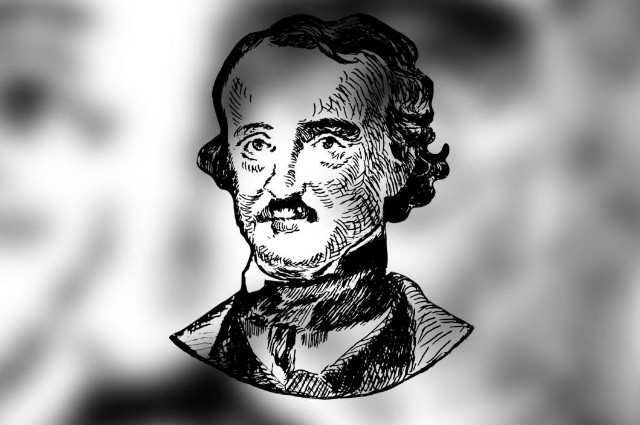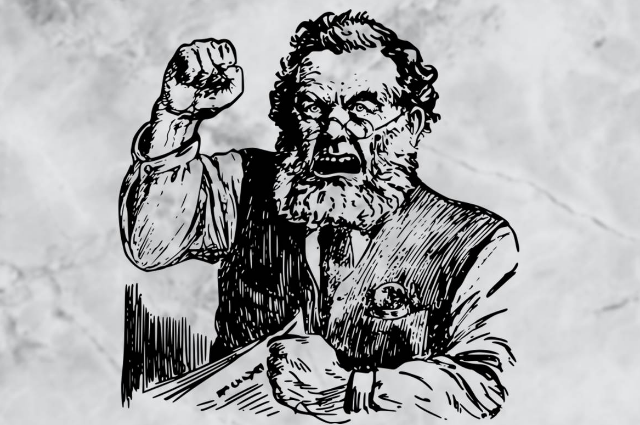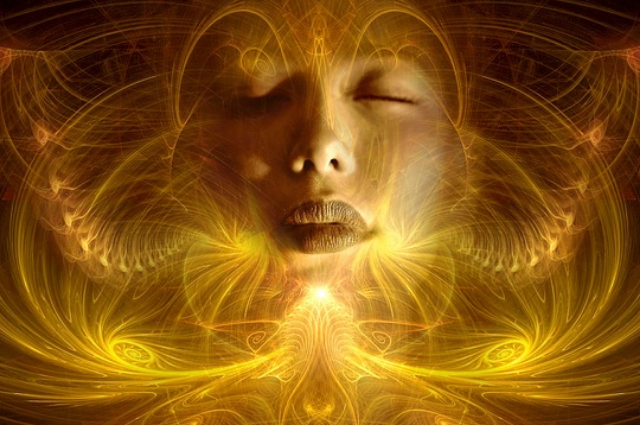
The morning sunlight was barely enough to charge my pale skin. The vehicles boomed and hissed like ferocious wild animals caught in a frenzy. It was a typical weekday in Bangalore where millions of IT workers get up to the sound of an alarm and run towards their office with a quick breakfast and a strong caffeine shake. It would be wrong of me to describe them any worse as I belong to their creed of wake up and strive until the weekend. I walked along the street judging my judgment over an imagined scenario and the dust that emerged from the streets made me rethink wearing my face mask at least for this unkind reason.
Along the way, I had come to a point where I had to cross a busy road. It's in every metropolitan-Indian blood to make haste and sneak like a rat, but I was very poor at this regional skill- as I was only getting started. I stood by some random person with experience in road crossing- as it appeared on his calm face, and walked parallel to him in huge confidence that I would only get hit if he gets hit first. We reached half the road and a truck with a ghostly howling sound left behind the thick dark smoke turning me blind for a moment in time. I rubbed my irritated eyes, stuck in inner confusion I slowly released them to see someone whom I could only describe with the word ‘Perfect’.
She passed through me like an unseen bullet, yet I could discern her like a stagnant statue standing for ages in front of my eyes. Her scooter didn’t even make any sound as it pushed some of the dusty air over my face. It was all over within a blink of an eye and that moment is what every hero in a Bollywood movie goes through before falling in love with a stranger who happens to be his relative. Movies are eons away from becoming reality in one's life and even if I were to find her again I would only pull back myself stating myself unworthy of such a creature. Beautiful things on earth are to be enjoyed with healthy grace, especially Perfect things.
I passed the road and a sudden uncarved thought decelerated my steps. I looked behind me and she was gone but her picture was still lurking in my mind’s eye getting more and more expressive as I reimagined it. I had to wonder- what was the cause? I had to ask myself- why did I call her Perfect? What is ‘Perfect’? Can someone be Perfect? The answers to these questions stayed like a far-away mountain covered with thick layers of fog. I had to walk toward it to see what it was. It was a difficult journey I had to welcome concepts with depth ness and vagueness as I am going through it again in this article.
Geometry
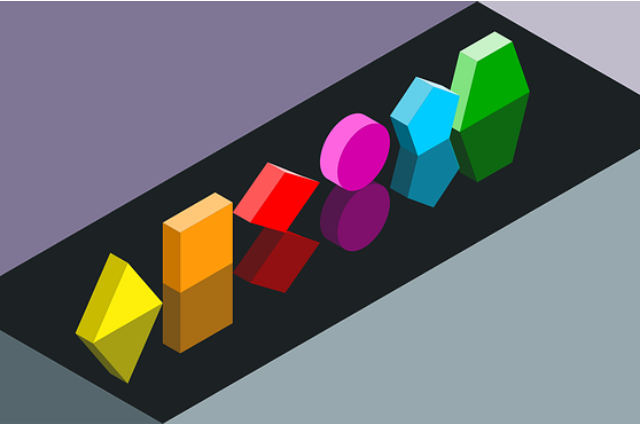
“Every object in this world is an imperfect copy of a perfect object in the world of ideas”, says Plato as he demonstrates his theory of forms/ideas. To put it in simple words, there are millions of cars on earth. Their shape, size, color, controls, and mileage are different from each other, but how do we come to call each of these vehicles a car and not a truck? Plato says that we call each of them a car because we innately realize that there is a perfect car in the world of ideas- the place from where our souls emerge.
Of course, it would be a blasphemous blunder to take it as absolute truth and proceed with its predictions. There is no world of forms except that which exists in our minds and this world of forms differs for each individual as it is governed by personal choices made up of varied life experiences. What's Perfect idli to me may not be Perfect to you as you may find variance in salt content or irritation at its oval shape.
So when it comes to that lady, we are sure that she isn’t descended from Plato's world of forms. As per my subjective biases, I can fairly say that I had not imagined someone as Perfect to be seen like her. Then how could I arrive at a conclusion without thinking about it? Was it rational realization or vague intuition? It came as a shockwave to know that it was both. I was rational in calling her Perfect and my intuition was- for a moment married with this array of rationality. In other words, intuition was rational.
"Geometry is the knowledge that appears to be produced by human beings, yet whose meaning is independent of them,"
_Rudolf Steiner, a famous Austrian Architect.
Imagine a circle. Ah! Yes, you imagined it right. It is round. It has no edges. It is clean and has nothing inside. It is a circle and can’t be described with anything else. Now you must admit that every time you see something round, it’s a circle, not that object or its own shape. The full moon is a circle, but the circle is not a full moon. All bangles are circles but circles aren’t bangles. A circle is an object whose definitive impression in our minds is soo deep that it would take our minds to go blank to unlearn it. But! you may ask, does the idea of a circle also coincide with that of zero? You are correct in this assertion but I must warn you that even an oval can be zero. Zero is like a metaphor for a circle and not its own existence. This imprint of eternal symbols doesn't end with the circle itself, some more of the geometrical shapes- square, rhombus, rectangle, equilateral triangle, cylinder, cone, etc join the company too. They are as absolute to our mind as the working of gravity to our body. How did they attain such a marvelously stagnant position? It is because of symmetry.
Symmetry…
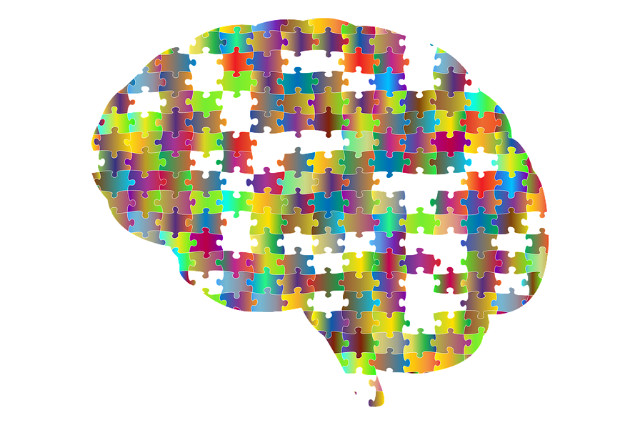
Image by Gordon Johnson from Pixabay
It is far more likely that we will imagine an equilateral triangle when asked to draw one, not an isosceles triangle. The equilateral triangle, like a circle, square, or rectangle is symmetric. Symmetry is defined as a property for a certain substance when disintegrated into two equal parts, each part would resemble the other. Symmetry rules our minds and perception like no other cognitive bias. Calling it a bias would only undermine its monstrous attachment to our senses. We live by symmetry, we seek it, we want everything to be symmetric, and even if it isn’t, we manipulate ourselves to make it symmetric. Not all Geometry is Symmetry, as we live with numerous geometric shapes we happen to identify those with symmetry more than non-symmetric ones. Symmetry has a personal angle too. When you encounter a stranger's face, you won’t realize that you are looking for symmetry. The person would appear as good-looking when both halves of their face are equal without the slightest smudge on either end. On the bitter end of our observation, we look for faces that match our own symmetry. If you happen to be square-faced, you are far likelier to be attracted to someone who is square-faced. A crazy experiment was conducted to check on this bias. Participants provided their portraits before they were shown photos of the opposite sex. Once they selected the desired pair it was found that the selected pairs were photoshopped of their own faces.
Now here’s the part of the answer to the question of the perfect lady. Her face was symmetric and she happen to have my facial structure.
I am not suggesting that symmetry is subjective- as I may be the only person to find her attractive. The structure may change, but its inherent cause and effect are universal. On the contrary, human facial structures are limited and the very idea of finding a Perfect human face would fall into a dilemma as opinions and favoritism matter more than objective findings.
There is another face to symmetry that we are always blind to. The pattern-making ability of our subconscious minds. We find patterns in the celestial arrangement- calling it astrology, we match dots on a piece of paper- calling it a puzzle, we attach death with a bad omen- calling it fate and we also pray to god- in the name of faith. This attitude of bringing unconnected things together and piecing them into a divine script is as beautiful as hazardous. According to David Hume, one of the world’s influential philosophers suggests that a complex idea is born when simple ideas are combined in our minds. “Angel is a complex idea,” he goes on “Two different experiences of human and wings are combined inside our minds”.
We may be acting as Hume suggests, for we are always liable for fooling ourselves while we think otherwise.
The original idea of Symmetry is different from the idea of pattern-making, but the pattern-making ability is derived from the effect of symmetry. In simple terms, pattern-making skill is a higher form or level in the scale of symmetry.
Now, talking of these biases, we have only considered tangible things, but what about abstracts which include poetry and storytelling? Is there symmetry in poetry?
Poetry…
There are certain instances in our lives where we get up from a normal state of mind with open mouths, goosebumps, and a spark of true enlightenment just because we think we happen to come across a revolutionary idea that none- from the beginning of history, has had an insight about. Be it an idea for a startup, a story fit enough to be a novel or a poem about loved ones, we are all weak to be deluded into believing it is a mark of true creativity. Only later do we realize that we were wrong about our great intuition about our greatest creation. The idea has already been used, suggested, or initiated by someone from the past, be it near or far past. There are no real ideas and if someone is arguing otherwise he/she is either a Genius- like Albert Einstein, or a madman- like Don Quixote. We need to be beware of both, for they can be misunderstood by our feeble biases about the world.
When we trace back the astounding history of storytelling and poetry, we find that they began with the late advance of civilization around 20 to 25 BC. The first known author according to scroll.com is Enheduanna, who lived in Mesopotamia- the hub of ancient civilization, around 23BC. But the same history tells us that poetry did begin as a recital from mouth to mouth not directly in the textual form. If we push harder than what’s advised in history, we can deduce that before the recital of sentences, there must be a state of ambiance where words are formed. Before words are pronounced, they must attain a value that describes things. To describe a word there must be language, and for a language to take shape it must be accepted by numerous others. When numerous others are involved in the process it is far more likely that it could emerge only after generations through various filters of misunderstanding, a difference of opinion, and revolts of a cruel kind. So to put it in simple words, it is impossible to define the origin of a story. It is very appealing to agree that a story or poetry is a culmination of imagination procreated by numerous brains over a period of time.
As I was talking about symmetry in a poem or a story, we do find that there is symmetry in all of them. Every time we listen or read or watch a story, there is an ending we always know about- the triumph of good over evil. If the story happens to end with a downfall of Good, we would soon realize that it is not the end at all. We are blinded by this phenomenon of expecting the good to be victorious, for there is another pattern that unknowingly gets attached to this likely anticipation- we relate ourselves to the Good which is going to win. Who wants to lose? Even the person who knows he is going to die, expects- at least in a minor percentage, to get out of that dire situation. Ram defeats Ravan. Krishna killed Kamsa. Thanos is defeated by Avengers. Gabbar is destroyed in Sholay and it goes on. The inference that would fall on our faces is rude when we realize that the story we are looking at is not at all original, it's just our characterization with the Good that keeps on changing.
If that’s the case for stories, what about Poetry? Which is vastly abstract and unpredictable? Edgar Allan Poe says that "Poetry is the rhythmical creation of words". Doesn't this quote take poetry to the next level of abstractness and innovative creation? Well, you are right at some point and wrong at the same time. The answer to this paradox lies in our emotions. Human emotions are not as varied as words and sentences in a particular language. Whatever the words may come in any order, they would simply evoke the regular set of emotions in our body. If you happen to go through the otherworldly experience, beware! You are not under the influence of poetry but some inhospitable drug. So, poetry does synchronize with the idea of symmetry and pattern-making ability at a deeper level. Not just with emotions but with the happenings of our life events.
To describe it with more profound reasoning, I had to call on the ideas of David Hume again. He says that there are two types of perception. First, he calls them Impressions- immutable sensations which are original like fear, hate, and love. Second, Ideas- recollection of these impressions like the fire experience. So the nature of Poetry is to encompass the mixture of Impressions and Ideas. We look for words to evoke an impression and directly connect them with ideas of the past to make sense i,e pattern-making. One of Hume’s famous quotes goes, “Beauty is no quality in things themselves; it exists merely in the mind which contemplates them, for each mind perceives a different beauty.” This is the reason why there is no absolute beautiful poetry in the world. Even the greatest works of Homer and Rabindranath Tagore are seen as dusted by many.
Conclusion…
It is the duty of philosophers to deal with the dangers of pattern making for it would create a world of delusion and misery. But, the world as we see it today is run by patterns and hidden notions of symmetry far beyond our grasp. If we try to bring out a true rationale in our lives we would be the odd one out, like a man standing among apes.
We are actively blind while we see the world with open eyes. What might be the solution to come out of this havoc? You might ask. My answer is if there were a solution to this problem the civilization wouldn’t be as beautiful as it is today. If you wish to perceive the pure form of the world and not get manipulated under any circumstances, the only way is to go blind, deaf, and dumb- all at once. Our senses are as wrong as they are right in perceiving the world. The nose may sense sweetness, but the object may not be the kind of sweet you happen to taste in the past.
We are all deluded and we are all the same, so no one is deluded.

